What Is The Stock Market
6 RESOURCES
⮞ Introduction
⮞ What Is The Stock Market
⮞ Opening A Brokerage Account
⮞ How Much You Need To Start Investing
⮞ Dividend vs Value vs Growth Stocks
⮞ 3 Steps To Successful Investing
What is The Stock Market
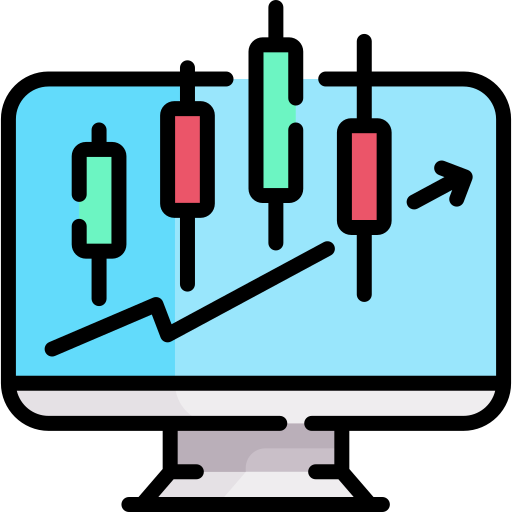
The stock market is a place where investors can buy and sell shares of listed companies.
When you buy a share of a stock, you are essentially buying an ownership of the business.
Essentially, you become a shareholder of the business.
Imagine the entire business as a piece of pizza, and this pizza is cut to several slices.
Buying a share of the business means you are entitled to one slice of this pizza.
In the stock market, it is like a supermarket of companies where every one of them are on sale on different prices.
For example, if you were to google "Facebook Share Price"
You can buy FB shares at $296.73 when it was 27 Oct 2023.
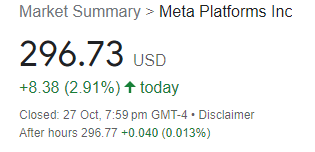
This means that you only need $296.73 to buy 1 share of Facebook.
How Many Shares Do You Need To Buy?

In the US markets, you can buy any number of shares - usually the minimum number of share you can buy is 1.
There are also some brokerages that introduces fractional purchase of shares.
However, in most Asian markets, you have to buy shares in terms of "lot". A single "lot" of shares usually refers to a 100 shares in most Asian markets.
For example, in Singapore, if you want to buy Singtel, you will have to buy a minimum of 100 shares of Singtel.

This means that you need to buy a minimum of $246 of shares.
Important: It is worth noting to choose a brokerage that suits your investment needs the most - we will dive more into that later.
Which Countries Should You Invest In?

As investors, we want to make our money grow the fastest.
We can take a look at the stock market index of different countries to decide where to put our money to work.
Stock market indexes are indicators for global and country-specific economies. The table below shows examples of index of countries.
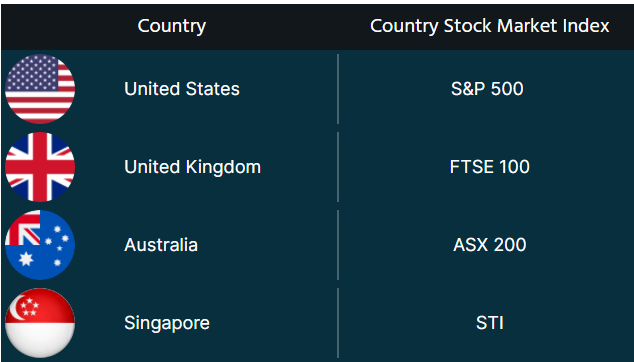
So when people comment that the stock market fell, usually they are referring to the United States S&P 500 index - as it is commonly used as a benchmark for stock portfolio performance in the US and abroad.
Now back to the question, which country should you invest in?
There really isn't a right or wrong answer, but if you are looking to build a portfolio designed for growth, it is best to invest in companies based in country with a strong and growing economy.
The United States becomes a popular place for investors to invest in.
However, the bottom line is that you have to invest in companies that you understand.
How Stocks Build Your Wealth?

There are generally two ways you would profit from a stock investment:
So, should one invest for capital appreciation or dividends?
It really depends.
Capital appreciation refers to the increase in price of the underlying assets.
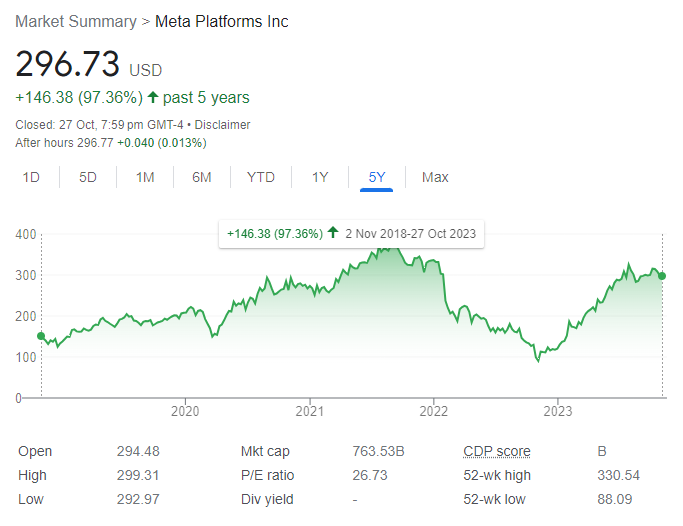
For example, if you bought META at $120 and it increases to $296.73 - this gives a capital gain of $176.73 for each share you own. Growth companies like META usually enjoy high capital appreciation, and they don't give much dividends.
What about dividend paying companies?
Dividends are a distribution of the company's profit to shareholders.
Most people tend to love investing in dividend stocks because of the thought of receiving passive income. However, dividend stocks typically do not have much capital appreciation.
An example of a dividend stock is Coca Cola.
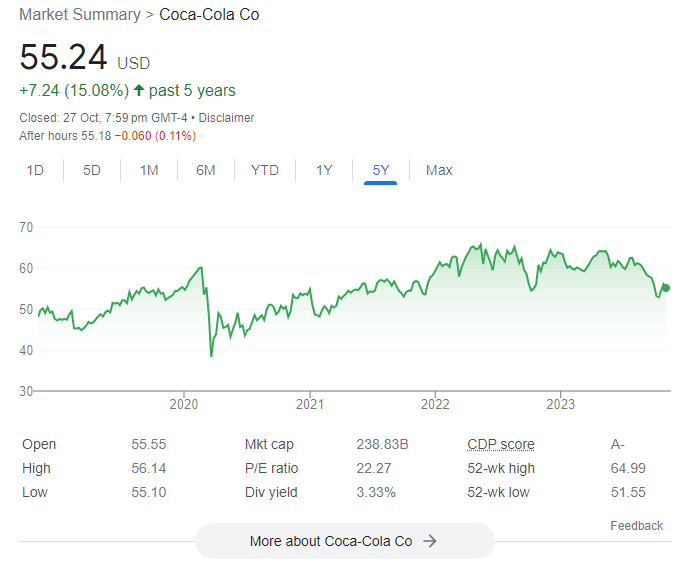
For example, comparing against META with the same timeframe - Coca Cola only has a capital appreciation of 15.08%, comparatively much lower than Facebook.
However, during the 5 years, KO gave dividend of around $184 for every 100 shares.
This means that if you had held 100 shares of KO, you would have collected $920 during the 5 years.
So it boils down to the question, which you should invest for - (i) capital appreciation or (ii) dividends?
If you are looking to grow your portfolio, you will focus more on capital appreciation rather than dividends.
If you are looking to create passive income, you will focus more on dividend investing.
As a general guideline, you will want to focus on growth when you have a smaller portfolio and only focus on dividends when your portfolio gets bigger.
I will talk more about whether we should investing in dividend stocks, value stocks or growth stocks in the later section.



